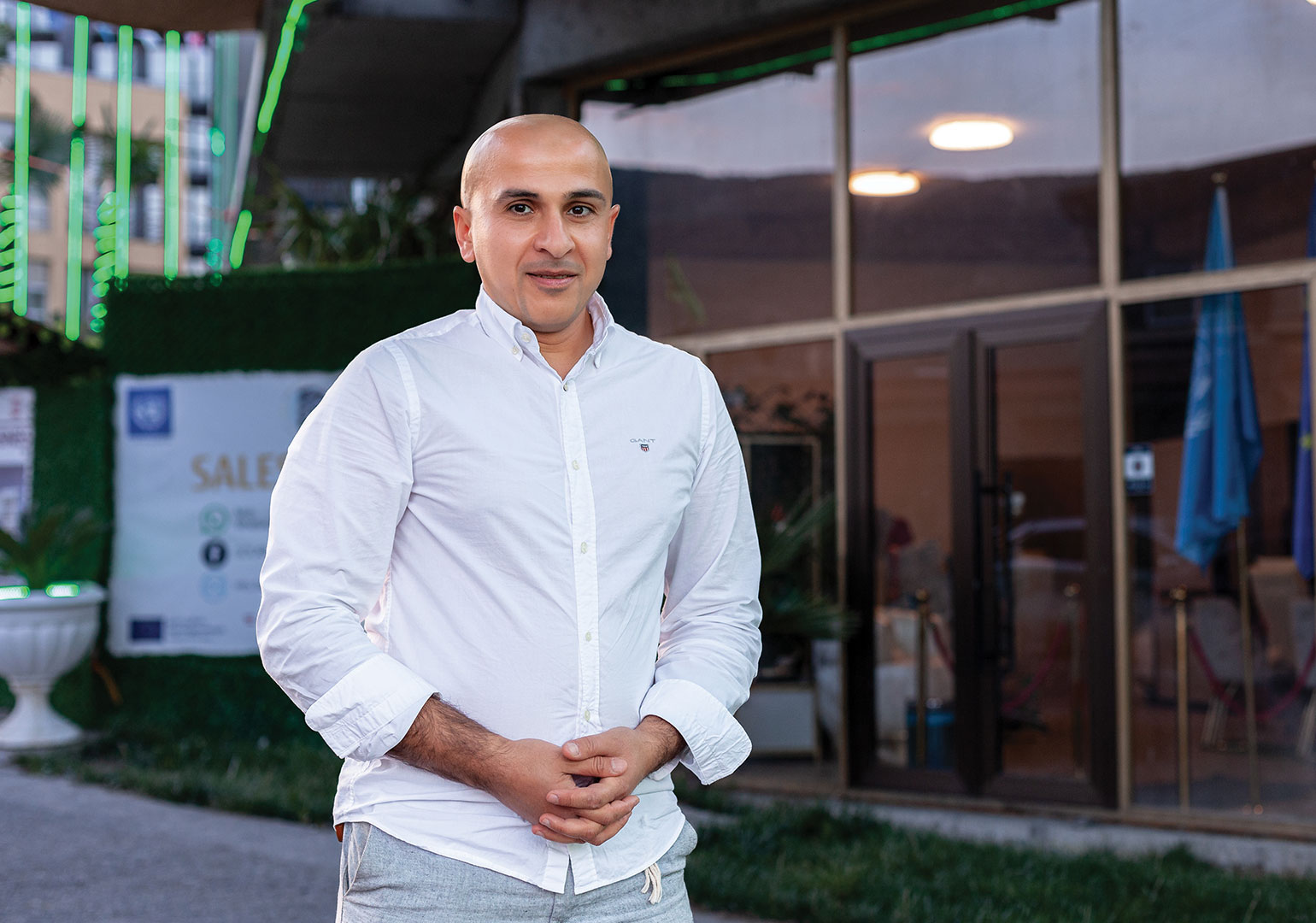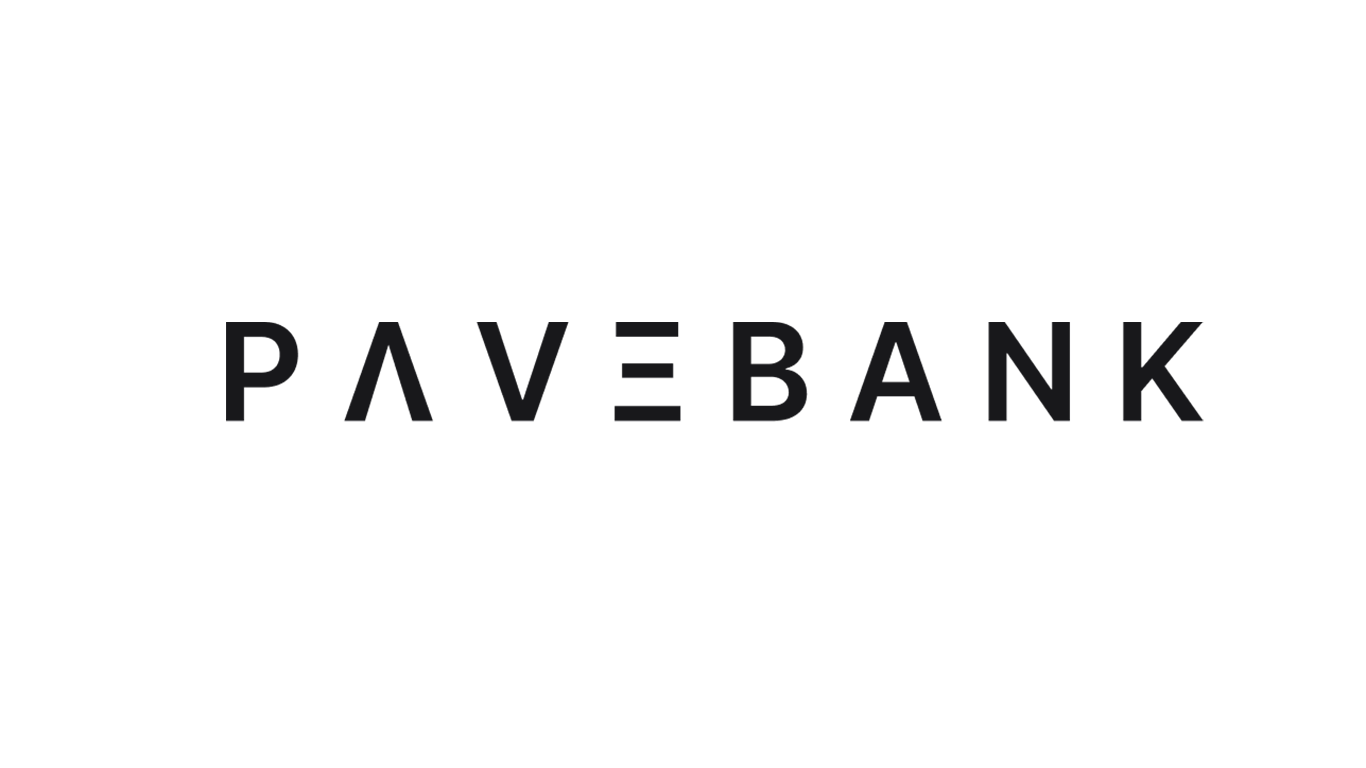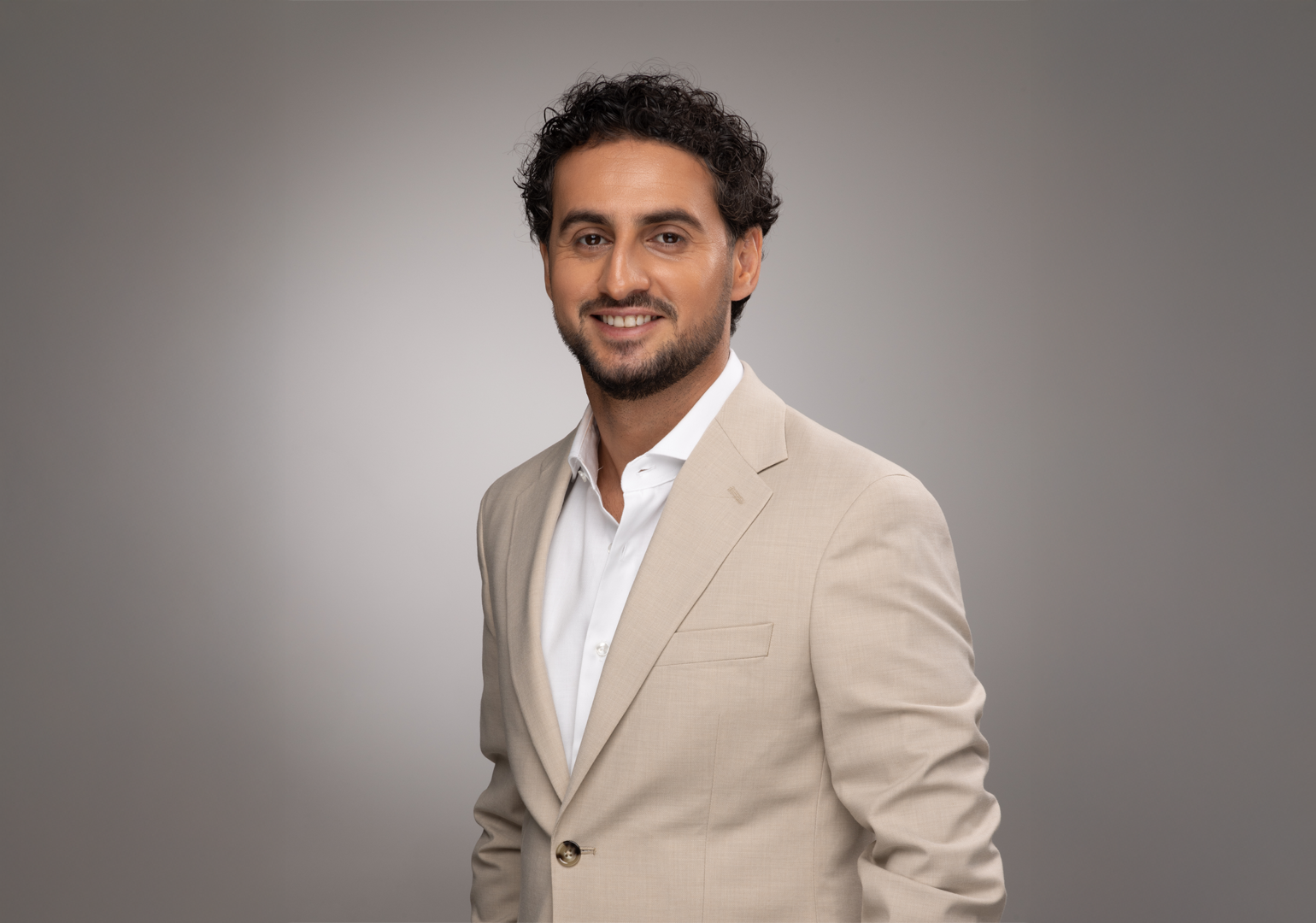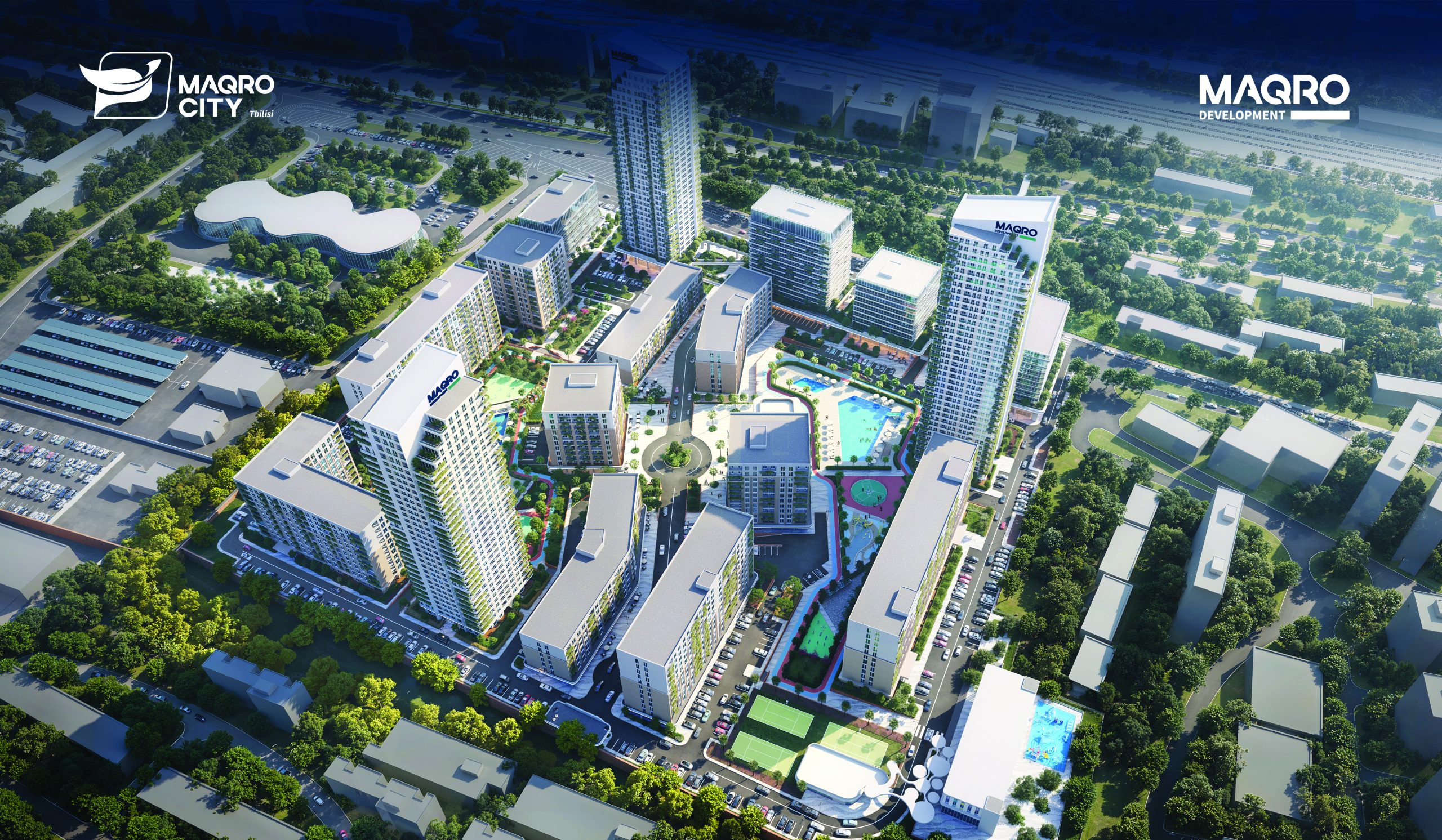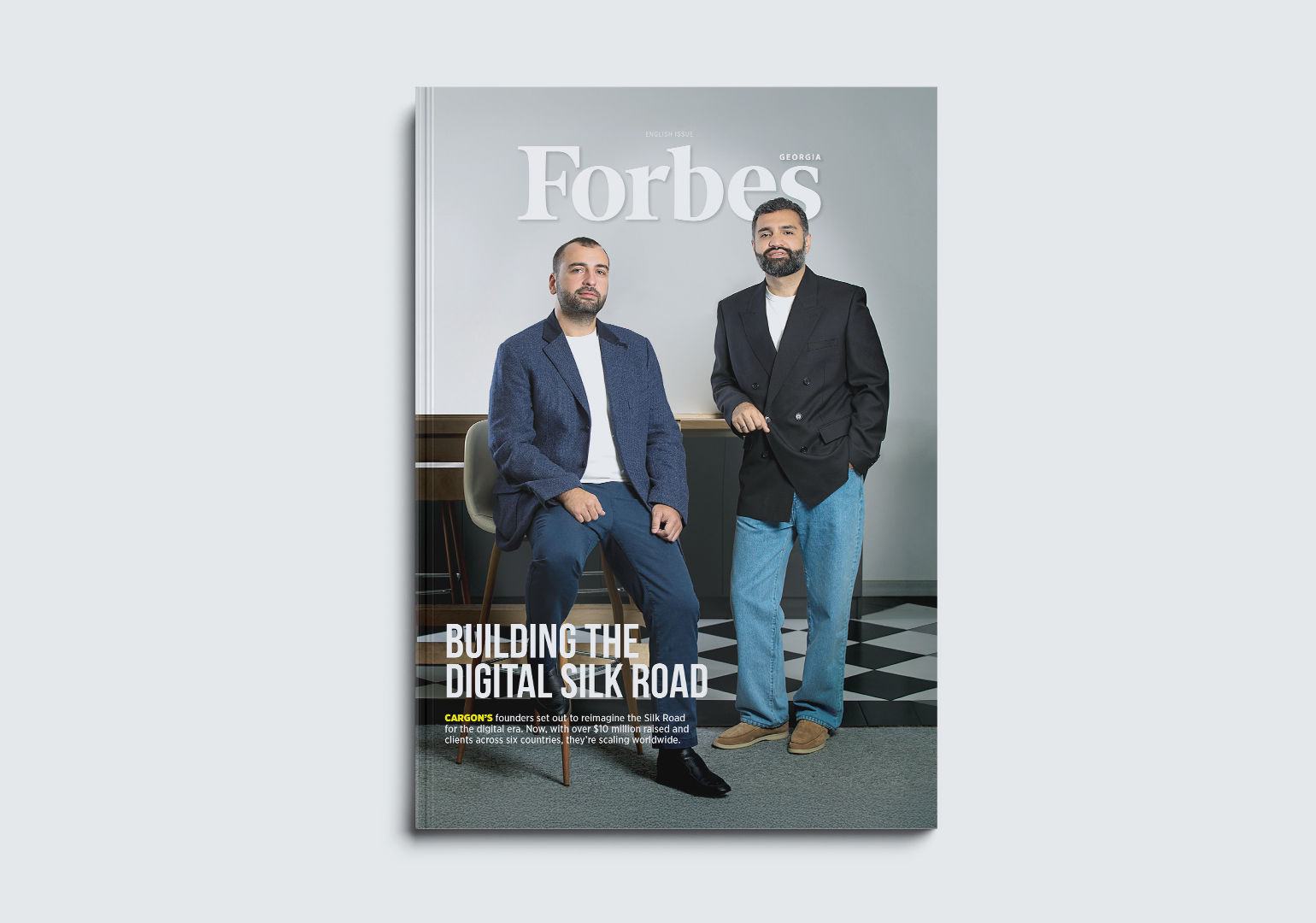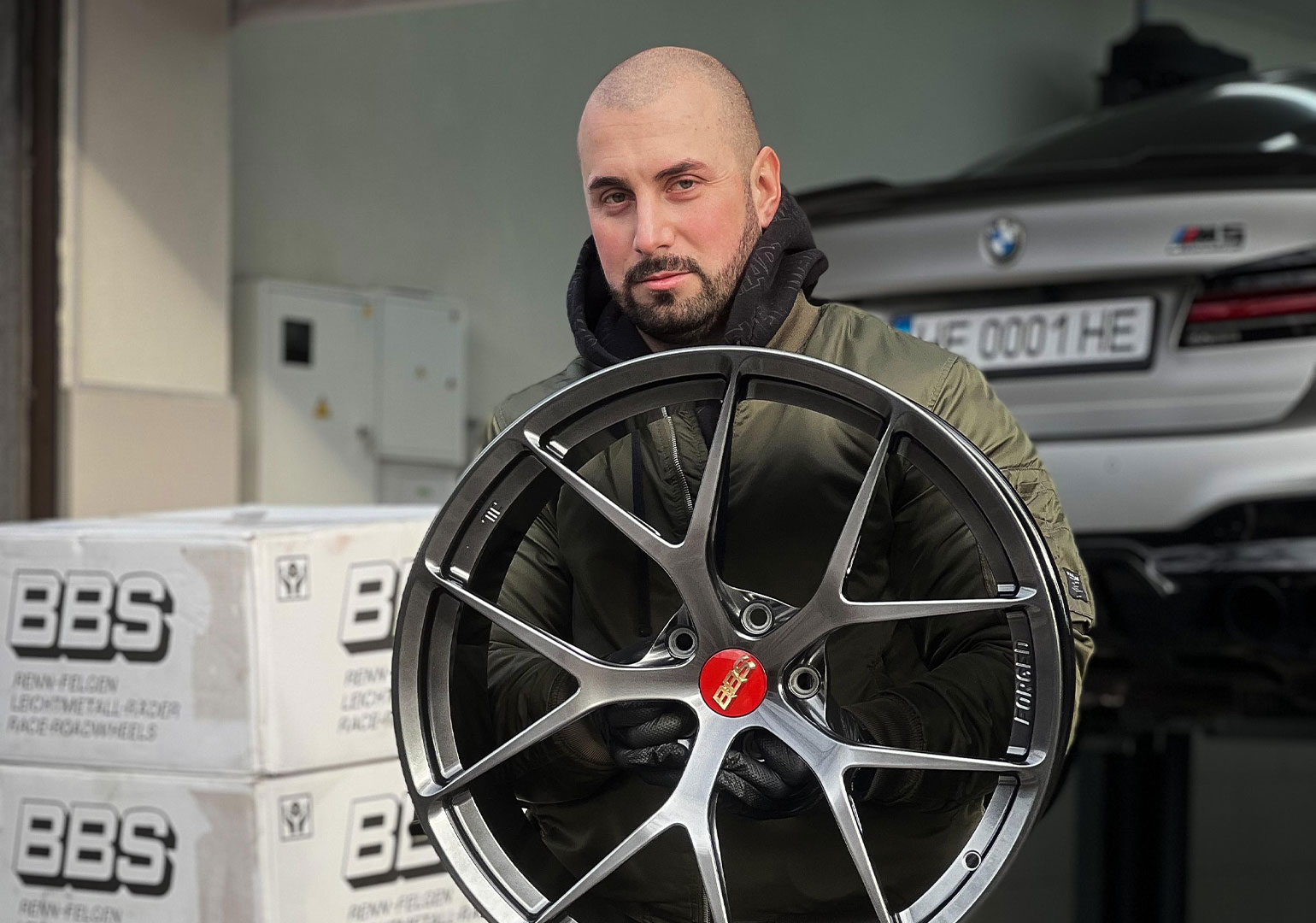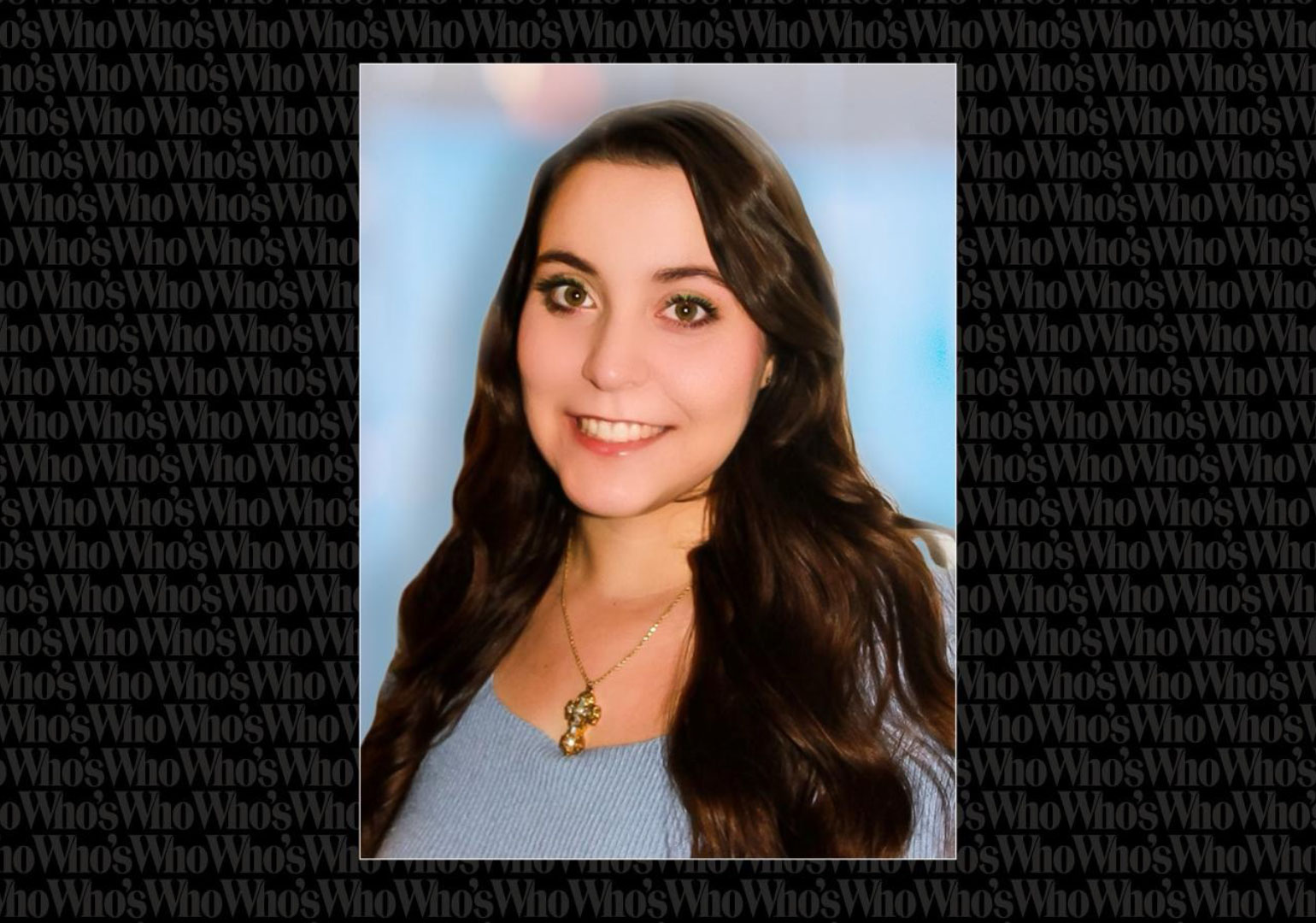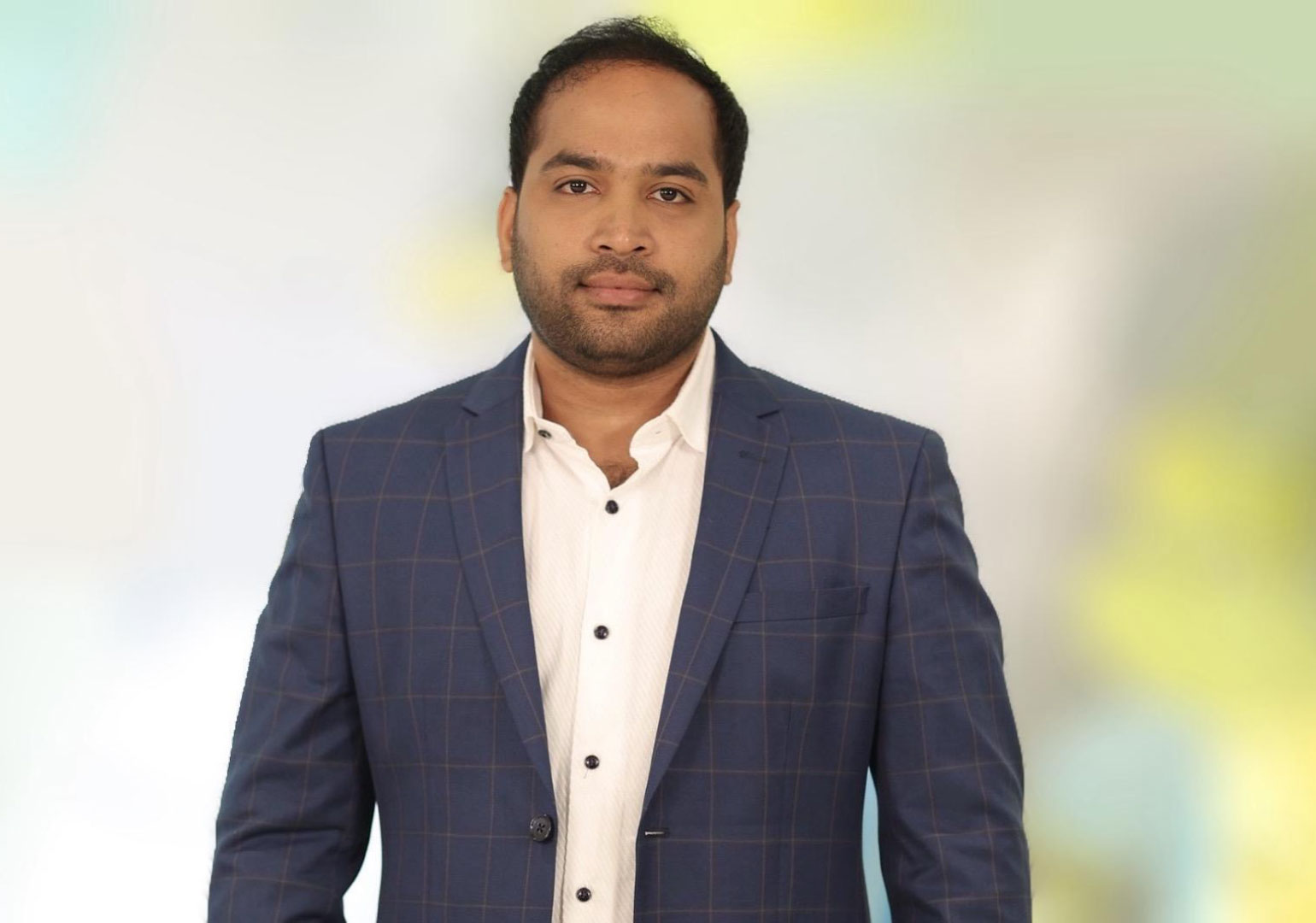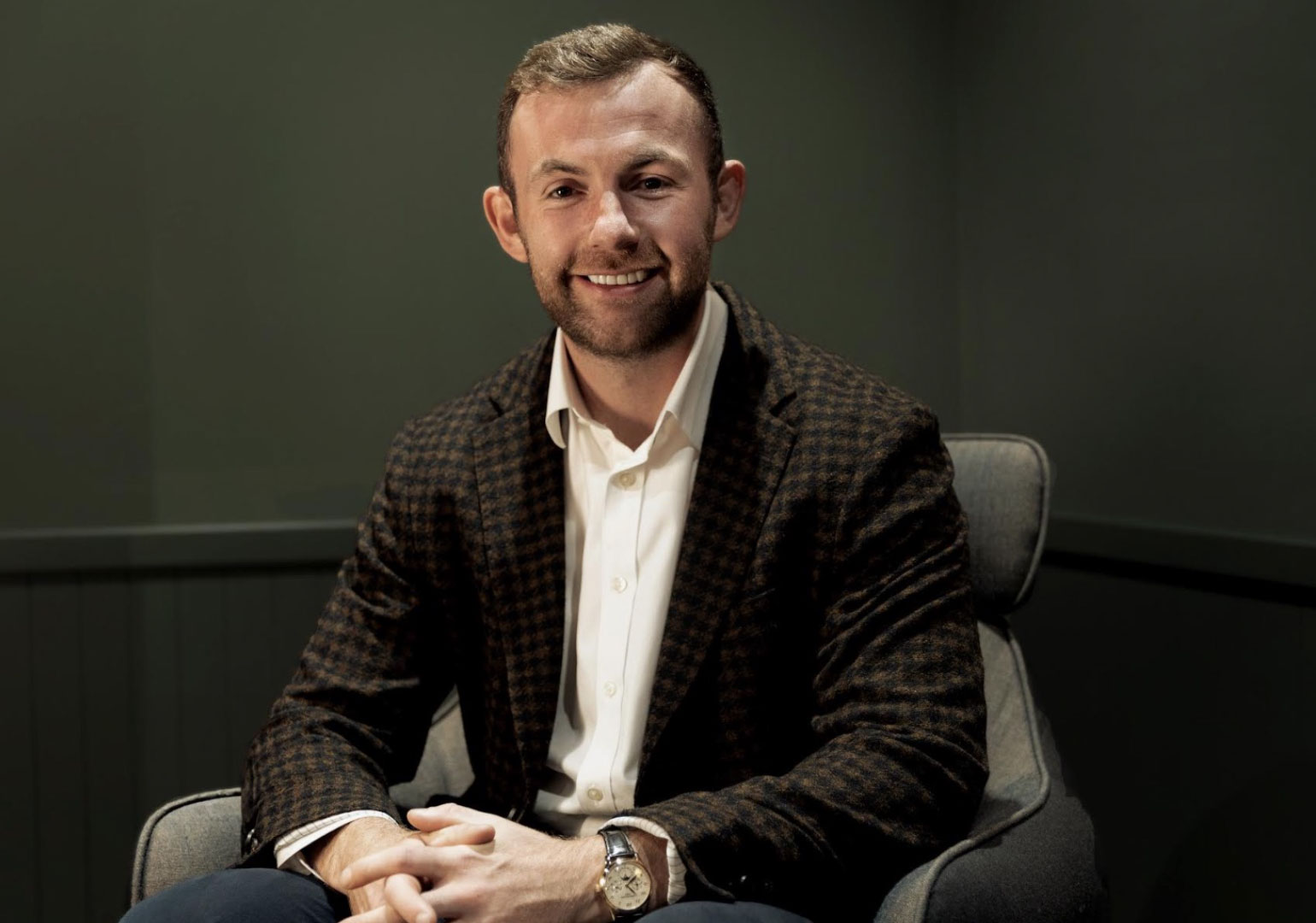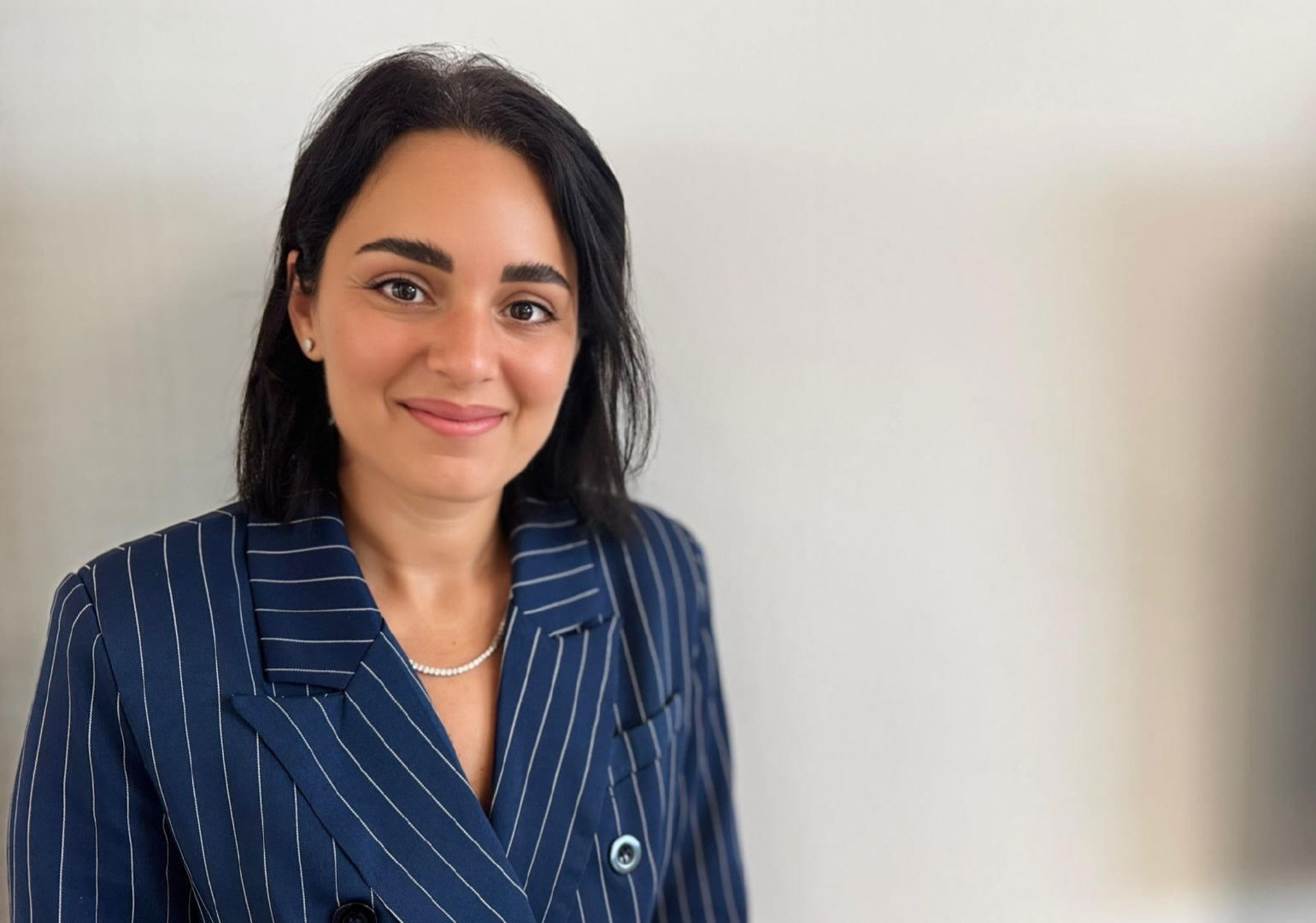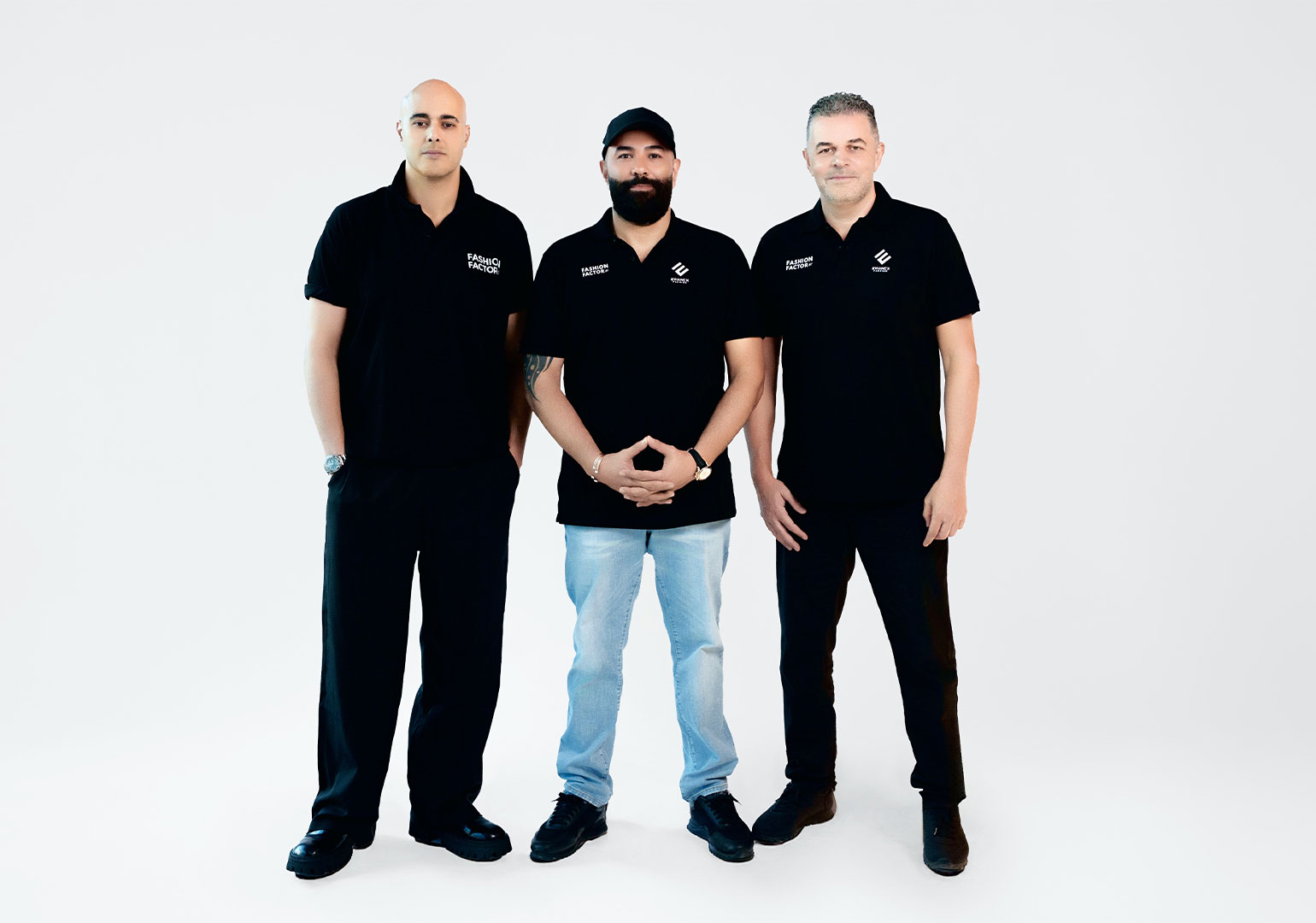In the Ortachala neighborhood of old Tbilisi, a multi-apartment complex is being built using modern green technology. Solar Energy Apartments (SEA) is a unique building designed to consume solar power. It is the only one of its kind in the Caucasus region. Sea project manager Levan Okropiridze is leading the project.
“Let your footprint on the planet be as small as possible.” Levan Okropiridze took it upon himself to implement this motto in Tbilisi. On top of his education in the humanities, Levan has a diploma in large-scale crisis project management. He decided to try his luck in the field of green and eco-friendly development ten years ago. After studying the multi-apartment real estate construction market for seven years, he decided to build a green, resilient, and autonomous residential space in Tbilisi equipped with the latest technologies, incorporating artificial intelligence, and designed to consume renewable energy.
“The lack of similar projects in Georgia had both positive and negative aspects. We spent a year and a half working on the façade alone. No one in Georgia had worked on a design adapted to solar energy before. We did not want this to be a standard construction project; none of the features we wanted to use were available on the market, which is still the case today. Nevertheless, the three of us were adamant that if this can be done in Poland, Finland, Japan, or Dubai, then it can be done here too,” Levan Okropiridze explains.
With this inspiration, Levan and a small team of like-minded individuals began to sell their vision to banks and international organizations. “Initially, we faced a lot of skepticism. Everyone from the banks to international organizations said that it was impossible to implement something like this in Georgia.”
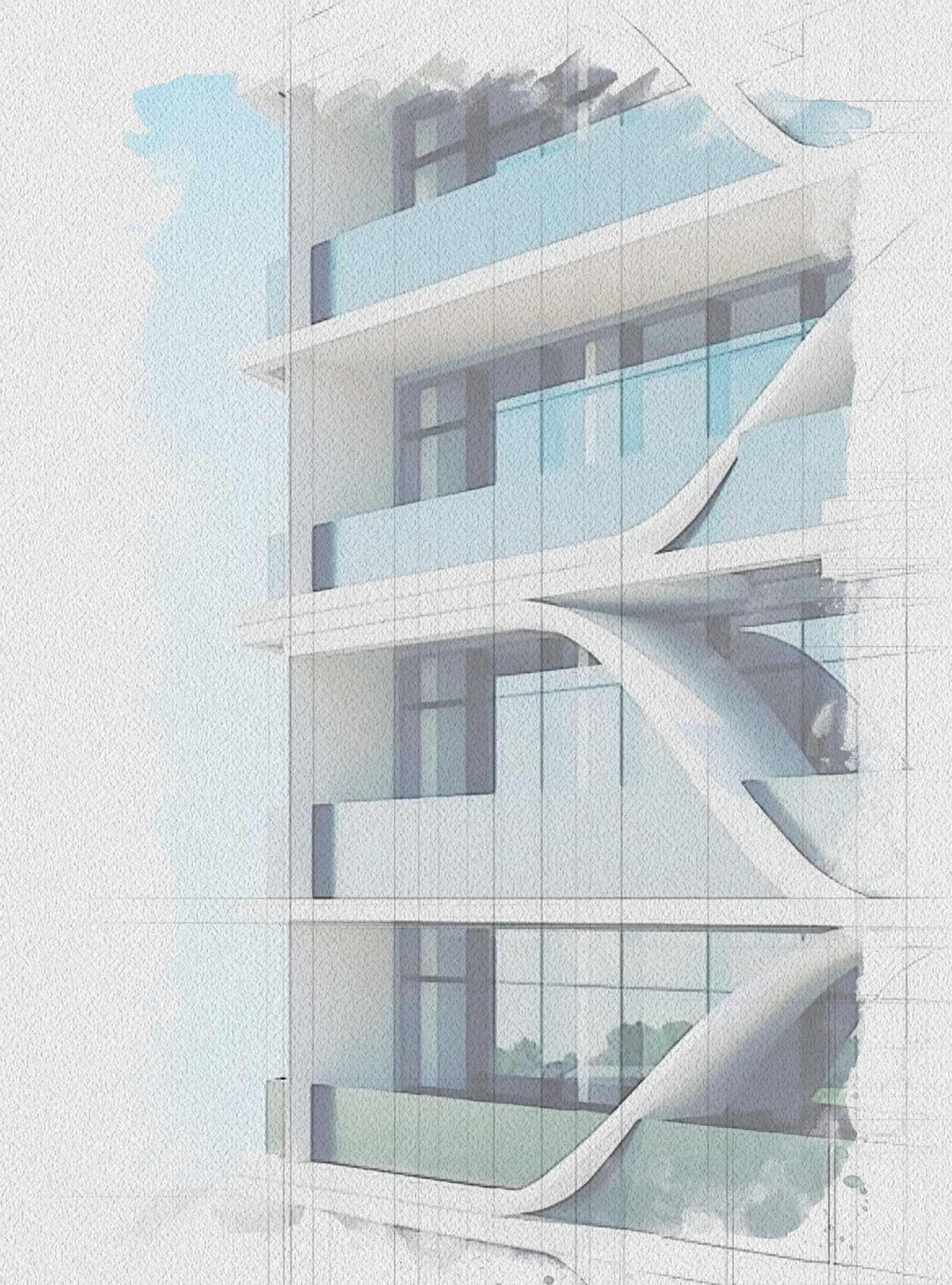
The team then decided to buy assets in development firms and study the residential real estate market. “We worked with three or four companies to learn about the products, the materials, the ways to save money, and the ways to improve things. We spent seven years in test and research mode.” During this time, Levan Okropiridze realized that certain construction technologies struggled to gain a foothold in the Georgian market. “Developers always choose a path well-traveled over a risky project. Technologies that have existed for over 20 years may remain unutilized in this field.”
Thus, the Solar Energy Apartments (SEA) project was born. It would later appear at Greenbuild EXPO, attain BREEAM certification, and be included in the Green Book.
BREEAM is the world’s leading science-based validation and certification firm, which certifies businesses for a sustainable future. Millions of BREEAM-certified companies around the world produce zero-emission green technologies.
Solar Energy Apartments (SEA) is an eight-story, 72-apartment complex with an investment portfolio of $2,700,000. However, behind this simple description lies an innovative, eco-friendly, and energy-efficient project incorporating expensive modern technologies and utilizing renewable energy. It is the first of its kind in the Caucasus region, and each square meter meets the highest standards of safety and resilience.
During the pandemic lockdown, Levan Okropiridze applied for a construction permit at Tbilisi City Hall. “I believe it was the only permit application submitted during that period. The pandemic further made us realize the importance of real estate and housing. This was a signal for us.”
The land on which the Solar Energy Apartments (SEA) project is being implemented has been owned by Levan’s family in the name of his mother, Tamar, for over 25 years. Before that, it was the site of a bread factory – the only one in the mid-1980s Soviet Union operated by remote control. Innovative technological solutions served as an inspiration for the project. Additionally, the Ortachala district in historic Tbilisi, with its potential to become a year-round tourist destination, had a perfect ecosystem for laying the foundations of the project. It was an ideal location for a hotel concept: the wide road stretching from Freedom Square to Krtsanisi Street offers the possibility to provide guests with convenient transport services.
When asked about the origin of the idea to make such a statement of intent on the development market, Levan replies concisely: “You always try to acquire something that you are missing. When I realized I wanted such a living space, I imagined I would not be the only one.” Solar Energy Apartments (SEA) is a high-end hotel complex comprising apartments owned by individuals or legal entities.
So, what is unique about SEA? This is a small-scale development project that is being implemented by 26 subcontractors. The project leader rejected the traditional three-component approach involving an engineer, a builder, and an architect, adding many more layers. “We obtained a conclusion from the Samkharauli Bureau of Forensics not just on the building but virtually every individual apartment. We also use a lab to test the quality of construction materials, including embedded reinforcement and concrete. Four different legal entities are testing our quality,” Levan Okropiridze says, adding that particular attention has been paid to the earthquake resistance component.
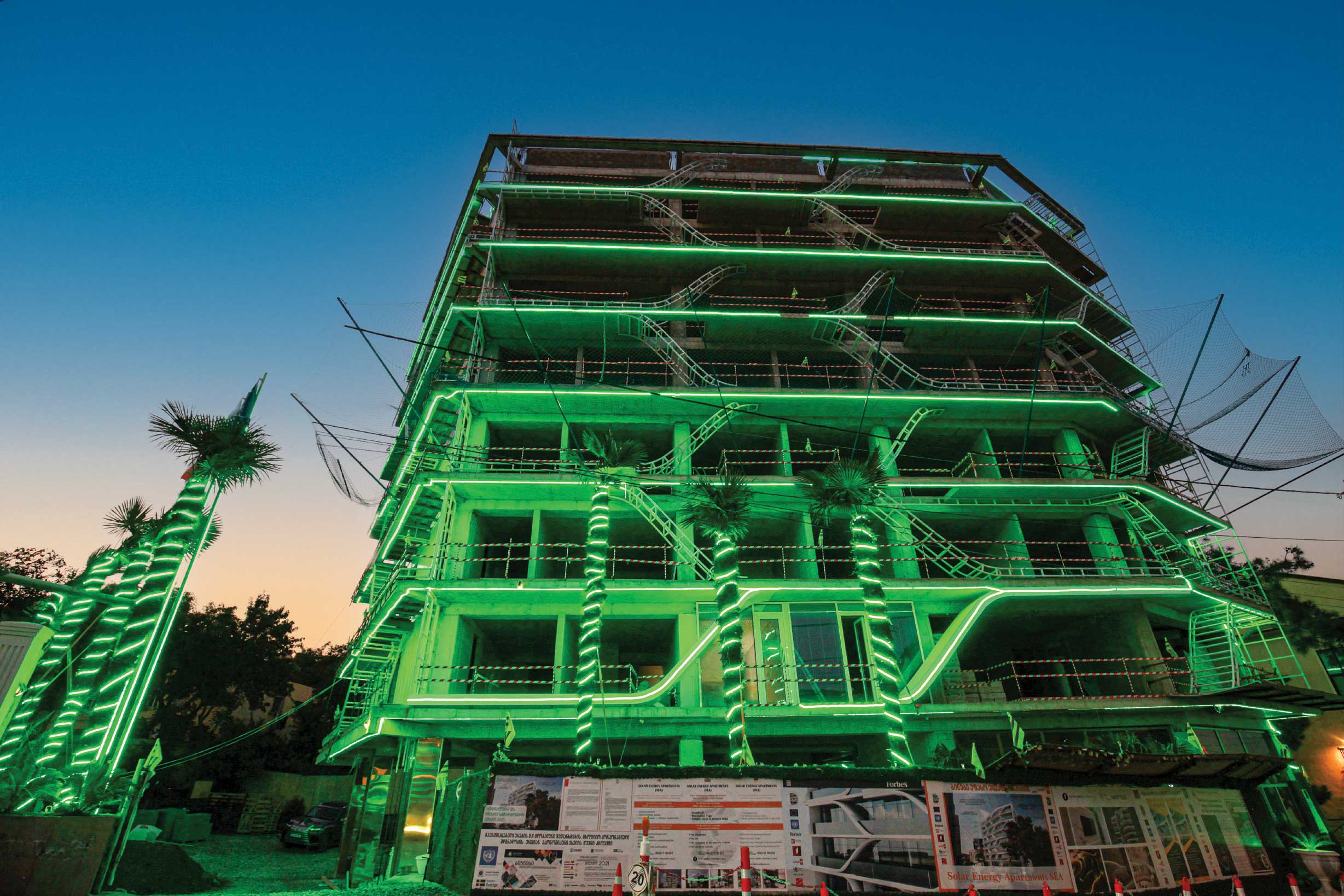
Key among the advantages of the project are the solar panels, which are being installed both on the roof and balconies. The building will be powered entirely by solar energy, which is not only environmentally significant but also reduces utility bills by 75%.
Incorporating solar energy into this project depends on the use of other technological solutions, without which the whole initiative would lose its purpose. “The shape and concept of the building itself is being altered. If we installed these panels in a neighboring building, they would be ineffective. It would be like turning on the heating inside a car during winter and driving around with the windows down. We are using different walls, doors, and windows – that is what we mean by the comprehensive approach required for this project,” Levan explains.
Heat can be lost inside a building through windows, walls, or doors. With that in mind, SEA uses durable German-manufactured windows and perlite blocks. “We are the only company in Georgia to buy perlite blocks from the factory to construct an apartment building. It is normally used in villas and private residences,” Levan explains. The main advantage of perlite is its energy efficiency. Made from volcanic lava rock, it can provide thermal and sound insulation for brick walls that are one meter thick. “This is a historical solution to the problem of noisy neighbors,” Levan Okropiridze jokes.
The walls will also have a 3 cm perlite coating on each side, creating the effect of a 15 cm brick wall. Such walls are capable of withstanding fire for up to doors. With that in mind, SEA uses durable German-manufactured windows and perlite blocks. “We are the only company in Georgia to buy perlite blocks from the factory to construct an apartment building. It is normally used in villas and private residences,” Levan explains. The main advantage of perlite is its energy efficiency. Made from volcanic lava rock, it can provide thermal and sound insulation for brick walls that are one meter thick. “This is a historical solution to the problem of noisy neighbors,” Levan Okropiridze jokes.
The walls will also have a 3 cm perlite coating on each side, creating the effect of a 15 cm brick wall. Such walls are capable of withstanding fire for up to 6 hours.
Levan recalls that during one of the EBRD conferences, in which 50 Georgian developers took part, experts recommended insulating the façade to increase the energy efficiency of construction. “We have insulated the whole wall, not just the façade. We were also advised to install solar panels on the roof to ensure the operation of elevators. Instead, we are installing the panels on balconies as well as the roof.”
A German firm helped SEA choose the solar panels. “Although more than 20 qualified companies are operating with this technology on the Georgian market, there are no precedents for installing solar panels in apartment buildings. We were promised to have them installed on the roof, but no one would give us any guarantees.” According to Levan Okropiridze, none of the construction materials on the Georgian market, apart from concrete, met the quality standards required by the project. Even the sewage pipes are supplied by foreign manufacturers. The pipes come with 70-year warranties, while the solar panels have 25-year warranties. “This does not mean the system will become inoperative in 25 years. Certain details may need to be changed, but it will continue operating as normal,” the project leader explains.
The interior of the building will be covered with marble. Marble mosaics will also adorn the apartments. The floors will be covered with high-quality Italian Atlas Concorde tiles, while ground marble will be used in the corridors.
Another strong feature of the building design is the lighting. There will be around 650 lighting points in the 72-apartment building. The apartments range from 22 m2 to 32 m2, including a small Tbilisian balcony.
The building uses geothermal energy to heat water, a complex technological spiral infrastructure. The water enters the soil at a certain depth through the relevant system, where the energy generated by solar panels heats it. This technology represents another energy-saving mechanism.
The elevator, manufactured by the German firm Wittur, will generate its own power during movement. “We could have bought eight Hyundai elevators for the price of this one,” Levan points out.
The building will have its own weather station, using artificial intelligence to provide tenants with recommendations, such as taking an umbrella when it might rain.
Artificial intelligence has a prominent role in the project. Together with German specialists, SEA’s partner firms in Georgia are writing a smart home code for the building’s security and service system.
Unprecedented security measures will include retinal scans and a mobile app to identify apartment owners. The program will greet tenants as they approach the building. The doors to the entrance hallway and parking garage will also be opened for them automatically. At the same time, the program will call the elevator and turn on the heating or air conditioning inside an apartment.
The project adapted to the solar cycle is due to be completed in March 2024. For the next 25 years, the current project management team will provide services such as security, cleaning, maintenance of the courtyard with its 130 palm trees, and more.
At present, only two out of the 72 apartment owners plan to live in the building permanently, while another five plan to use the space periodically.
Hotel management will be carried out by a company with 8 to 10 years of experience in this field. The company currently operates in five countries and offers a complete package of hotel services, including airport transfers and domestic tours.
Apartment owners can also rent out their property in partnership with the management company, receiving either 70% of the rental fee or a fixed annual payment.
The net metering mechanism allows the owners of apartments to sell the electricity generated by their properties back into the grid and earn additional income. For 25 years, apartment owners will not have to pay electricity and gas bills or cleaning and security fees.
When Solar Energy Apartments (SEA) starts welcoming its tenants in the spring of next year, Levan Okropiridze will begin implementing another considerably larger renewable technology project, which requires state involvement as proof of interest towards such technological initiatives in Georgia. “Our philosophy and objective have never been to implement a one-off construction project. We were the first developers in Georgia to try to get into the EU catalog,” Levan Okropiridze says. His vision of the company’s future includes European countries.
“That is why we are interested in obtaining certificates. You need an appropriate quality certificate to operate in any EU country.” Where does Levan see himself in 20 years? “Managing a 1,000,000 m2 energy-efficient project in a European country,” he replies with conviction.
S
